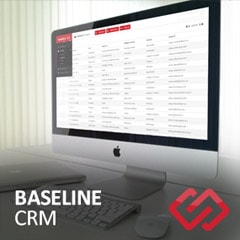10 Tactics to Increase the Quality of Your Website

A website is one of the most important tools a business can have. It's the main point of access to your products, services, contact information and so much more. Now the question is, with so many websites on the internet, how can you stand out from the crowd?
This is where a few different factors come into play. To rank higher on search engines, you need not only a website, but a high quality website. This raises another question – what makes a website "high quality?"
A high quality website is determined by many Search Engine Optimization (SEO) factors that lead to your website being placed in the top spots on search engine rankings. However, SEO is not the only path to a high quality website. The design and back-end functionality add to the quality of a website.

The answer most people don't want to hear is that there is no single thing that will transform an average website into a high-quality, #1 search engine ranked website. Creating a high quality website is a process that involves SEO, design, as well as some technical tactics.
Here are 10 SEO, design & technical strategies that you can use to evaluate and increase the quality of your website:
- Freshness and Spell Check
- Coding Guidelines
- AODA
- Mobility
- Website Structure
- User Engagement
- Inbound and Outbound Links
- Webmaster Tools and Analytics
- Website Authority
- Optimizing the Back-end
Keep your website fresh and updated. Search engines love websites that are constantly tweaking their designs and content. Be warned that if you are constantly adding new text that is misspelt or grammatically incorrect, it can become a negative factor for your website, as users may not use the same incorrect spelling in their search queries that you have on your webpage. As a result, it’s imperative that you double and triple check your spelling and grammar, so that search engines will remain friendly to your website.
A great resource for coding guidelines is located at W3Schools. There are tons of tips and conventions that you'll want to implement throughout your website.
Websites that are accessible to all users receive higher rankings and are viewed as high quality. This will include having fixed sizes for images and alt tags on every link, among other things. A useful tool for this is the Markup Validation Service.
Mobility is now a key factor when it comes to search ranking. Don’t believe me? Check out this Google Webmaster Central Blog.
Be certain that every page has titles and descriptions. These are the first items that search engine crawlers will search and without it, you're setting your website up for poor rankings. Also, ensure that you have a website that is easy to navigate. Implement super menus and breadcrumb trails, utilize a search query and be sure to include a sitemap. Another great tactic is to keep your URLs short, simple and consistent. Using a hyphen between words and make sure that the keywords are included - this is a simple strategy to increase the quality ranking of your website.
Whether it is through social media share buttons or a comment section, directly involving users is a fantastic way to rank higher on search engines. If people are finding your content and engaging with or sharing it, search engines will recognize you as a high quality website. The team over at Kiss Metrics have a great post that breaks down how social media and SEO relate to one another. You can check out 5 Things You Need to Know About Social Media & SEO here.
The relevancy of the websites that you link to, along with the accuracy and popularity of the sites that link to your website, are vital factors that increase your SEO rankings. Don't go and link to a bunch of random sites hoping that your search engine rankings will increase. They won’t – search engine algorithms are smarter than the average bear.
Using free tools like Google Analytics or Webmaster tools, is an excellent way to evaluate the quality of your website. Both want your website to do better, so they provide you with warnings, errors and suggestions on how to fix issues with your site. If every page has an error or you are being flagged for having duplicate content, a sitemap issue, broken links, or maybe a missing 404 page, then your site is probably not rated very well and you're going to have to do some tinkering.
Websites that meet certain standards rank higher in search engines. Things that seem simple (but are sometimes forgotten) increase the legitimacy of your website. Having the correct address on your website, the right information on your contact forms, privacy policies and legal information, along with your website security measures, all have an effect on the authority of your webpage, and as a result, your position in search rankings.
High quality websites also have back-end components that need to be optimized. Script and server-side errors need not be present, load time should be quick and security must be robust. These technical strategies may require some developer experience, but if it increases the effectiveness of your website, then it is worth it.
Wrap-up
A high quality website is a powerful tool to have in your arsenal. Your service or product can only take you so far, but without a high quality website, you're missing out on the next big step for your business. After all, a high quality website will increase your search rankings and in turn, generate more traffic for your company.
Some Helpful Tools
You can uses the links above to measure the quality of your site. Go ahead and check out how your website currently stands!
If you have any questions, comments or suggestions, be sure to leave a comment below!
And if you enjoy our Web Blogs, be sure to subscribe to our Core Web Newsletter!
As always, thanks for reading!
Steve Malott







Comments